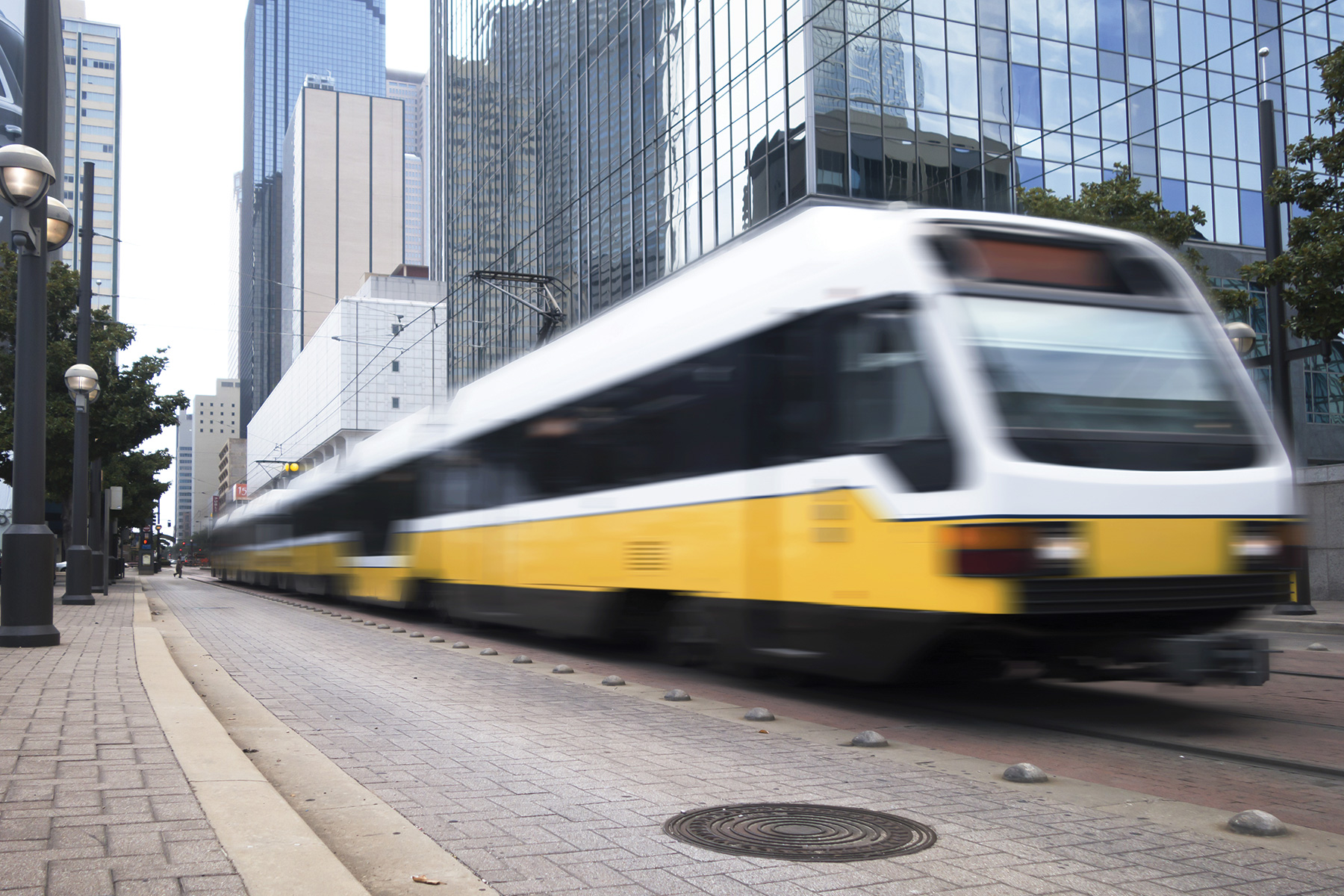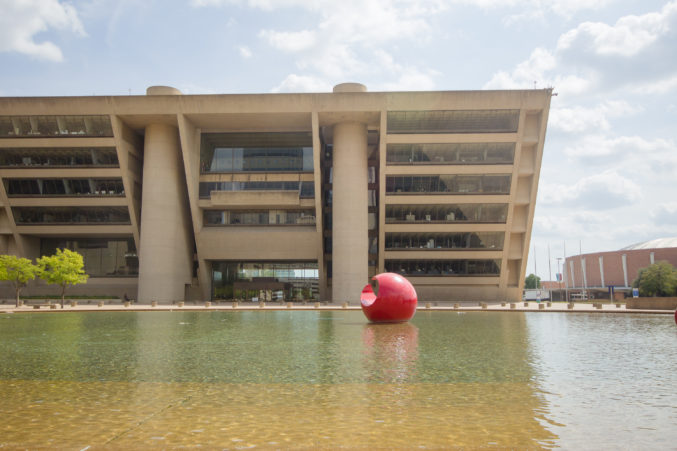On the last day of February, Dallas Area Rapid Transit brought bad news to City Hall. DART’s board agreed last November to give its 13-member partner cities the leftover sales tax money that the agency didn’t spend because of how much the federal government provided for coronavirus relief. There was $234 million left over, and Dallas was set to get $111 million of it.
On February 28, the City Council’s transportation committee learned that its take could drop to as low as $28 million. The transit agency said it has spent $36 million extra on “project enhancements” for the Silver Line commuter rail, which will extend from Plano to DFW Airport and includes about three miles of Far North Dallas. DART planned to take that difference out of the sales tax giveback. It also told the committee that the city had not provided comment on design reviews nor had it issued construction permits in the 10-day period established in what’s called an interlocal agreement, or an “ILA.”
In the case of Coit Road, which will have to be rebuilt to accommodate the passing train, the city went 287 days without responding, said DART CEO Nadine Lee. Those delays, she said, costs the transit agency somewhere around $150,000 each day. The bill is inching toward $50 million. And that, too, would need to come from the excess sales tax bucket.
“When we want to go to construction, we cannot break ground until we have that permit in hand; we can’t get the permit until we get the designs approved,” Lee said in an interview this week. “If the city’s not going to look at them, which there’s evidence that suggests that they never even opened them … that is a huge problem for our schedule.”
The city disagrees. Transportation Director Ghassan “Gus” Khankarli said in an interview after the meeting that the city and DART have “been engaged in over-the-shoulder discussions” of which the “responses are documented.”
“We’ve consistently given feedback and comments to DART on all of the rail crossings,” said Assistant City Manager Robert Perez, whose purview includes public works and transportation.
The City Council had been under the belief that the $111 million would be theirs to spend. DART’s only stipulation was that the money be used on projects that enhanced infrastructure around transit. Dallas would need to give invoices to DART and be reimbursed.
Perez already presented a list to Council. The city planned to use the money for ADA-compliant ramps and sidewalks in a number of council districts, new traffic signals along transit corridors, a trail through southern Dallas, a pilot program that would cover fares for students, and a study to determine how to turn empty DART lots into mixed-use developments.
Suddenly, all that was in peril. Council didn’t have much of a heads-up on how the meeting was going to go. A few minutes before that meeting, council members were handed a sheet of paper that included the line items that added up to $36 million. DART had come to tell the city it would have to settle up before it would release any of the excess sales tax dollars. The transit agency requires its member cities to be in “good standing,” which means its member cities can’t carry outstanding debt. Dallas would need to be in “good standing” before it could get its money.
Councilman Tennell Atkins put his head in his hands and rubbed his temples, and demanded the city and DART “get in a room, clean it up, and give me a timeline.” Councilman Adam Bazaldua called that Tuesday surprise a “piss-poor way to continue the relationship” between the city and its transit provider.
But the strongest rebuke came from City Manager T.C. Broadnax, who shot down the argument that DART did anything above and beyond. The things the city asked for, he said, are just part of what makes “a good project and a good design that is safe for our community.”
“It is not fair to this council and, I think, a little disturbing,” he said. “It is something that I would never do as a person in a partnership.”
Khankarli told Council that about 80 to 90 percent of what DART presented as bonus projects were actually required to meet Dallas’ standards around mobility and safety. DART says it already paid for $42 million in things it didn’t have to, $15 million for sound walls and landscaping and another $27 million for other add-ons. (A city spokesperson said that amount would need to be confirmed through an open records request, which had not been processed as of press time.)
In watching the public meeting and speaking with DART officials, it’s difficult to parse who is at fault. Dallas said it provided comment on hard copies of design plans; Lee said the city never opened the electronic file and couldn’t move forward because of that.
Some on Council—like Councilwoman Cara Mendelsohn, who has been a hawk about how the project impacts her District 12—believe the sound walls and other additions are required to meet city standards and accuse DART of mismanagement. Khankarli told Council that the list of items DART considers extra are included in the city’s mobility and Vision Zero plans.
That’s why the city manager requested mediation with the North Central Texas Council of Governments, the organization that steers federal and state dollars to regional transportation and infrastructure projects. Broadnax felt the two parties needed someone else to sort it all out. That meeting happened this Tuesday, and it’s unclear the outcome. (Perez and Khankarli wouldn’t speak to what was negotiated “until all of that is finalized and we have the opportunity to confer with the city manager, the DART CEO, and also with our Council,” Perez said.)
Meantime, the suburban cities are watching. Before the room exploded, DART trustee Rodney Schlosser delivered a status update on the increasingly fraught relations of the board. Dallas, because it has for years funded more than half of DART’s revenue, has eight representatives. The other cities have seven. Schlosser pointed to demographics that show the suburbs adding more people than Dallas proper by 2030, which could eventually result in Dallas having less power at the table.
“We have a situation where the suburban members of the DART board have gone from being frustrated to being extremely unhappy,” Schlosser said. “We are on a regular basis having to deal with very tense situations on the DART board.”
This is one of those: Until Dallas and DART get on the same page, the transit agency can’t deliver the suburbs the rail line they have asked for since the agency’s creation in 1983. Other member cities are growing frustrated with that, and Schlosser warned that there is “growing momentum to ask the legislature to change our enabling legislation.”
And, indeed, Plano state Rep. Matt Shaheen has filed House Bill 3146, which would allow the legislators to open up the statute that created DART and potentially amend how the agency is funded and the board makeup. That movement could gain more ground as those suburban cities begin paying in more than Dallas does, too.
Ultimately, though, it seems that the City Council’s argument (and Broadnax’s as well) is not whether the makeup of the board shifts—it’s that DART is not being a good partner. And as cities begin to have conversations amongst themselves, they may find that they agree.
But that’s all for the future. DART maintains that it has gone above and beyond to accommodate Dallas and that it is fair to ask for help in covering costs related to the Silver Line. And in this matter, it seems like the COG will have to get both bodies to sort it all out.
Author






